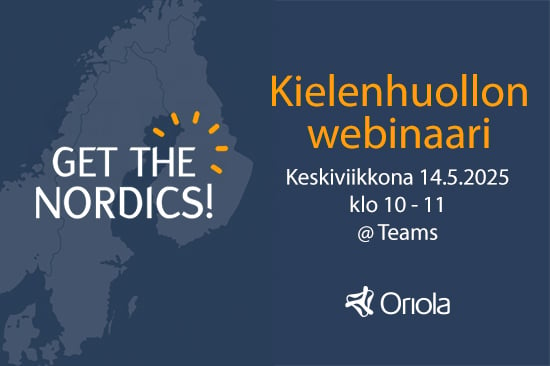What does real world data mean in drug trials?
8.8.2018
When speaking of medicines, real world data (RWD) refers to the efficacy of the medicine in a real-world setting and in practical daily use. Real world data can be collected from different sources, such as registers, databases, health surveys, biobanks, clinical cohort studies and pragmatic clinical studies.
“Real world data typically refers to information that is collected outside the strictly controlled and randomised clinical drug trials required for the marketing authorisation of medicines. Real world data shows how well a certain medicine works in the patients' everyday life. It can also reveal hitherto unidentified requirements as regards treatment practices,” says Jarno Ruotsalainen, Research Manager at Farenta, Oriola.
Real world data supports the medical treatment of patients
The pharmaceutical industry in particular has recognised the possibilities of real world data. Real-world evidence (RWE) derived from real-world data can be used in several phases of drug development and life cycle, for example, when evaluating:
- the burden caused by the disease;
- the treatment and financial benefit of the medicine;
- compliance and commitment to treatment (adherence and persistence); and
- the safety of the medicine.
Real world evidence is also utilised when designing and targeting clinical drug trials.
“The International Society for Pharmacoeconomics and Outcomes Research (ISPOR) encourages the use of RWE in the decision making processes in health care. The Finnish Medicines Agency also published several years ago a recommendation to consider the patient perspective when evaluating the treatment and financial benefit of a medicine,” says Ruotsalainen.
Real world data directly from patients
The registers maintained in Finland and other Nordic countries are an important source of real world data. They contain extensive information on the prescription, use and costs of medicines. Our real world data service can also be used to collect information that is not included in the registers. Data is collected through our network of research pharmacies, using patient surveys in connection with dispensing of prescriptions. The surveys provide information about the patients' health behaviour, the actual dosing of the medicine, adjuvant medication and the effect of the medication on the quality of life.
"The information reported by patients can also be compared and combined with registry information and utilised, for example, in the assessment of methods in health care,” says Ruotsalainen.


